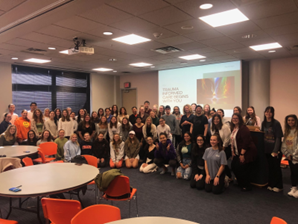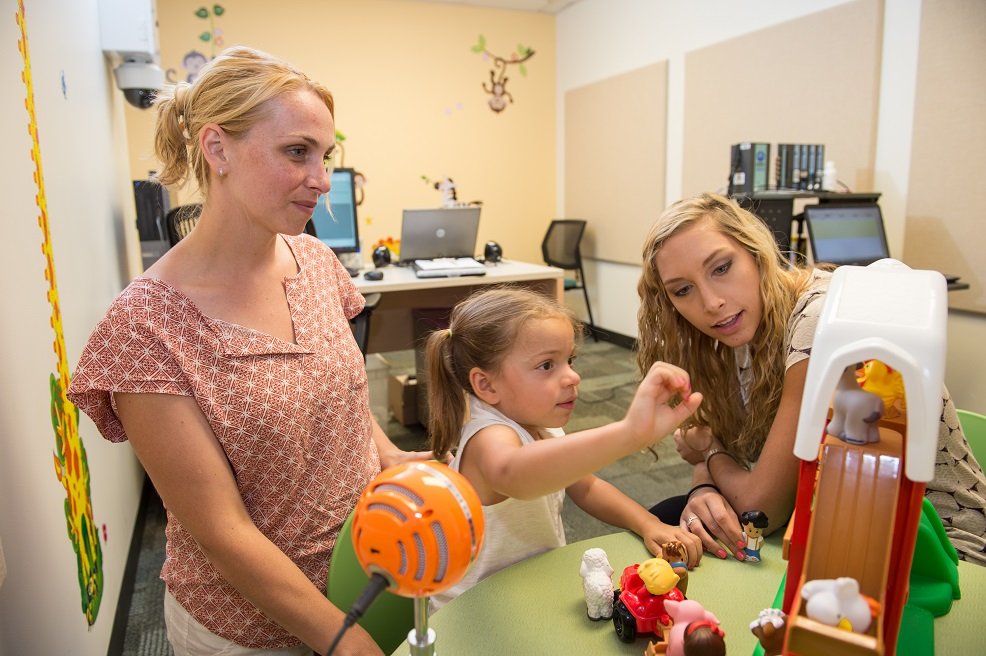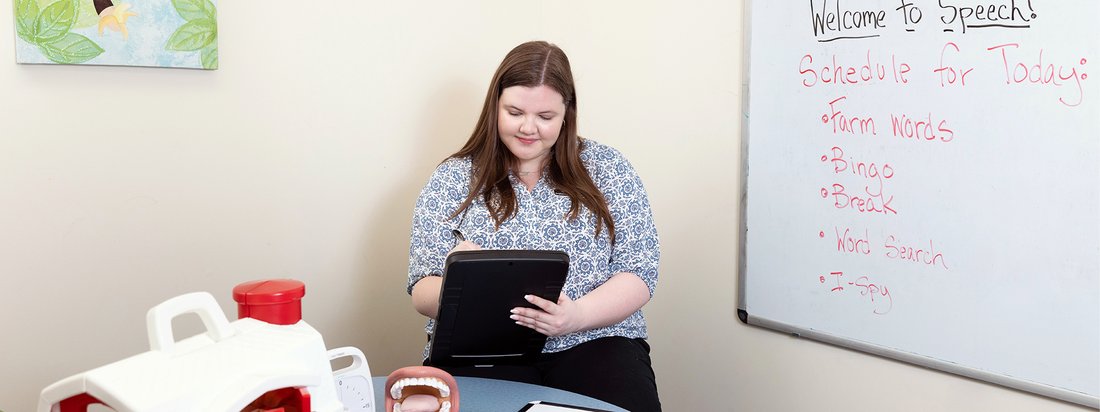
College of Arts and Sciences
Curriculum
Take introductory coursework in communication sciences and disorders including developmental processes of speech, language and hearing, and communication disorders. As a foundation for these, you will also take coursework in behavioral, biological and physical sciences and mathematics. As an upper-level student, choose from a range of elective courses to focus on topics that most interest you.
- Identify the developmental norms for speech and language acquisition, the theoretical and scientific foundations of communication sciences and disorders, and general knowledge of speech, language and hearing disorders.
- Understand and explain the basic clinical process for the prevention, identification, evaluation and remediation of communication disorders.
- Apply critical thinking, problem-solving and logical reasoning skills to problems, issues and/or clinical case studies in communication sciences and disorders.
- Explain “evidence-based decision-making” as a lifelong learning process in communication sciences and disorders.
- Demonstrate effective professional written communication skills as they pertain to clinical topics and situations in communication sciences and disorders.
- Demonstrate effective spoken communication skills to explain and describe content and/or research knowledge as it pertains to topics in communication sciences and disorders.
- Identify how individual, cultural and linguistic differences influence speech, language, hearing and the disorders of communication that individuals may experience.
- Recognize and explain professional ethical principles in the fields of speech-language pathology and audiology.
- Introduction to Applied Phonetics
- Fundamentals of Hearing Sciences
- Basic Clinical Audiology
- Speech Language Pathology in School Setting
- Cognitive Neuroscience of Speech and Language
Extracurricular Opportunities
Gebbie Speech, Language and Hearing Clinic
The Gebbie Clinic is a state-of-the-art educational, clinical and research facility and training site. It offers service and support to adults, children and families in need of diagnosis and treatment for a wide variety of speech-language and hearing difficulties. It includes speech therapy rooms, group therapy rooms, telepractice technology, voice and speech-sound disorder evaluations and treatment, sound booths for hearing testing, a hearing aid fitting room to simulate everyday listening environments and an auditory brainstem response and vestibular testing room. Under the close supervision of graduate students and faculty, undergraduate students may shadow clinicians.

National Student Speech Language Hearing Association
The National Student Speech Language Hearing Association is the only national student organization for pre-professionals studying communication sciences and disorders recognized by the American Speech-Language-Hearing Association.

Undergraduate Research Experience in CSD
Students interested in research have the opportunity to work with communication sciences and disorders faculty in their laboratories on a research project.

Learn more about this program

